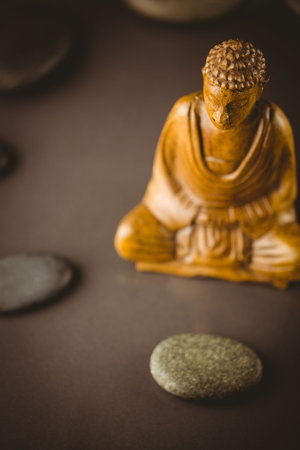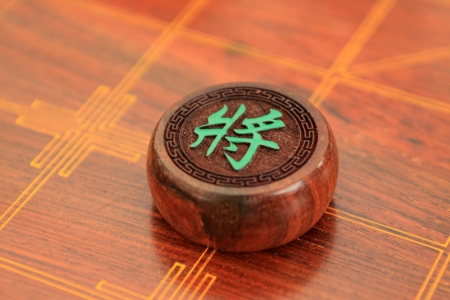Feng Shui Origins: More Than Just Eastern Mysticism
When many in the UK hear the term “feng shui,” it’s often dismissed as an exotic superstition or a fleeting trend from the Far East. However, this perception is rooted in misunderstanding. Feng shui, originating from ancient China, is not simply about mystical beliefs or decorating tips. It is a sophisticated philosophy that explores the relationship between people and their environments, aiming to cultivate harmony, wellbeing, and balance. In the British context, feng shui is frequently reduced to quirky objects like lucky cats or crystals, but its true origins run much deeper.
Feng shui’s foundational principles focus on the flow of energy—what Chinese tradition calls “qi”—and how spatial arrangements can influence mood, productivity, and even health. This approach resonates with long-standing British values of comfort, practicality, and order within the home. Instead of viewing feng shui as an imported curiosity, we can recognise parallels with local traditions such as the thoughtful arrangement of furniture in Georgian interiors or the cherished concept of “cosy” spaces. By bridging these philosophies, it becomes clear that feng shui is less about superstition and more about intentional living—a concept equally at home in a London flat or a countryside cottage.
2. Misunderstanding Feng Shui Objects: Beyond Lucky Cats and Bamboo
When it comes to feng shui in the UK, a prevailing myth is that its power lies primarily in certain decorative items—think waving lucky cats or clusters of lucky bamboo. While these objects have become almost synonymous with “Eastern luck” in British homes and shops, their actual connection to traditional feng shui principles is often misunderstood or overstated.
In the British context, feng shui is sometimes reduced to a collection of ornamental trinkets believed to attract wealth or harmony. It’s not uncommon to walk into a high street shop and find “feng shui” labelled products promising prosperity simply by their presence. However, true feng shui focuses more on the intentional arrangement of space, light, and energy flow rather than on specific objects themselves.
Popular Items vs. Authentic Significance
| Common Object | British Perception | Traditional Feng Shui Meaning |
|---|---|---|
| Lucky Cat (Maneki-neko) | Brings wealth & good fortune | Japanese origin; not used in classical feng shui practice |
| Lucky Bamboo | Symbol of growth & prosperity | Represents resilience; only holds meaning if placement aligns with bagua map |
| Red Envelopes | General good luck charm | Mainly used for gifting money during Chinese festivals, not daily decor |
| Chinese Coins tied with red ribbon | Attracts financial luck when placed at entrances or tills | Can symbolise abundance but must be placed according to energy flow principles to be effective |
The Real Essence: Placement Over Possession
Beneath these popular misconceptions lies a deeper truth: authentic feng shui is less about what you display, and more about how your environment supports wellbeing through thoughtful design and spatial balance. In the UK, where Victorian terraces or modern flats present unique spatial challenges, effective feng shui adapts by considering natural light, airflow, and personal movement within the space—rather than relying solely on symbolic décor.
Cultural Adaptation in Britain
The British tendency to equate visible symbols with instant results may miss the subtlety of feng shui philosophy. Rather than collecting objects, it’s more meaningful to reflect on how your home’s layout influences mood and functionality. For instance, clearing clutter from entryways or arranging furniture for smoother conversation can have a far greater impact than any figurine perched on a shelf.

3. Feng Shui Is Not Interior Design: The Distinction
One of the most persistent misconceptions in the UK is the belief that feng shui is simply another form of interior design, easily slotted in alongside British décor trends. However, this assumption overlooks the essential philosophy and intention behind feng shui. While both disciplines shape how we experience our homes, their approaches and purposes are fundamentally distinct.
Understanding the Core of Feng Shui
Feng shui, rooted in ancient Chinese philosophy, centres around the flow of energy—known as qi—and seeks harmony between individuals and their environment. The placement of furniture, use of colour, and even the orientation of doors and windows are all guided by principles aimed at balancing natural forces and enhancing wellbeing. In contrast, traditional British interior design typically prioritises aesthetics, comfort, historical references, and personal taste without necessarily considering underlying energetic dynamics.
Misconceptions About Overlap
It’s easy to see why confusion arises. Both feng shui and British interior design may recommend decluttering spaces or maximising natural light. Yet, for feng shui, these choices are about clearing stagnant energy and inviting positive flow—not just achieving a visually tidy room. British trends might favour a gallery wall or bold wallpaper as an expression of personality, while feng shui would assess whether such features create balance or disrupt harmony.
A Holistic Approach Versus Decorative Choices
The heart of the distinction lies in intention. Feng shui offers a holistic framework that considers how every element influences overall energy and supports inhabitants’ lives. It’s not simply about choosing cushions or paint colours; it’s about aligning your living space with nature’s rhythms. By recognising this difference, UK homeowners can appreciate both traditions on their own terms—and avoid the myth that adopting feng shui means abandoning beloved British style.
4. Feng Shui in the British Home: Compatibility with Local Architecture
One of the most persistent myths about feng shui in the UK is that its principles are incompatible with the unique characteristics of British architecture. From Victorian terraces and Edwardian semis to modern city flats, the question often arises: can these traditional Chinese concepts truly work within a British context? The answer is a confident yes—feng shui is inherently adaptable, designed to harmonise energy flow in any built environment, regardless of style or age.
Navigating Assumptions: Does Feng Shui ‘Fit’?
Many assume that feng shui is only relevant to Eastern architectural forms or open-plan layouts. In reality, its core principles—such as balancing the five elements, optimising natural light, and creating welcoming entrances—can be integrated into every type of British home. Whether you live in a narrow Victorian terrace, a Georgian townhouse, or a compact urban flat, feng shui provides flexible guidelines for enhancing your space’s well-being.
Adapting Principles to Common UK Home Types
| Home Type | Common Features | Feng Shui Adaptation Tips |
|---|---|---|
| Terraced House | Narrow layout, shared walls, front and back doors aligned | Use screens or plants to slow down fast-moving chi between doors; mirrors to expand visual space; warm lighting to invite positive energy |
| Flat/Apartment | Compact rooms, limited natural light, communal hallways | Add greenery for vitality; use reflective surfaces to maximise daylight; keep entryway clear for an inviting first impression |
| Victorian Build | High ceilings, ornate details, fireplaces as focal points | Balance heavy architectural features with soft textiles; place seating to benefit from fireplace energy; highlight period charm with harmonious colours |
The Spirit of Adaptation
The essence of feng shui lies in understanding how energy moves through your home and making thoughtful adjustments that suit both your lifestyle and your building’s quirks. There’s no need to strip away cherished period details or force Eastern décor where it doesn’t belong. Instead, focus on intuitive changes: decluttering entryways, positioning furniture for easy flow, and celebrating natural light wherever possible.
A Modern British Approach
Bespoke solutions are key when applying feng shui in the UK. For example, if your home has small sash windows typical of Victorian properties, use light-coloured curtains and mirrors to brighten interiors. In flats where space is at a premium, clever storage doubles as clutter control—a central tenet of feng shui harmony. Ultimately, integrating these principles enhances not only the look but also the feel of your British home.
5. Practicality vs. Superstition: Functional Benefits of Feng Shui
Among the most common misconceptions in the UK is the belief that feng shui is nothing more than a collection of superstitious rituals, detached from modern life and rational thinking. However, this myth overlooks the deeply practical foundations and tangible benefits that feng shui can offer, particularly when tailored to contemporary British homes and lifestyles.
Beyond Lucky Charms: The Everyday Logic of Feng Shui
While the media often portrays feng shui as an array of symbolic trinkets or mystical objects, its roots are firmly grounded in environmental psychology and spatial awareness. Many principles of feng shui—such as maximising natural light, improving air flow, and reducing clutter—closely mirror mainstream interior design advice found across the UK. Rather than relying on superstition, effective feng shui focuses on creating spaces that feel harmonious and support wellbeing, productivity, and relaxation.
The Psychological Edge: How Space Affects Mood
British residents increasingly appreciate how their surroundings impact their mental health. Feng shui offers a structured approach to optimising layout and décor so that every room supports its intended purpose. For example, arranging furniture to encourage conversation in living rooms or positioning desks to reduce distractions in home offices are both practical applications rooted in feng shui’s principles. These choices foster calmness, clarity, and comfort—outcomes valued by busy UK households.
Functionality at Its Heart
It’s important to recognise that feng shui doesn’t require elaborate rituals or expensive purchases. Instead, it encourages thoughtful use of space: keeping entryways clear for smooth movement, using mirrors to expand cramped areas, or incorporating plants to bring vitality indoors. These suggestions have clear functional benefits, supported by both tradition and modern research into how environment shapes behaviour.
A Modern Approach for British Homes
Ultimately, embracing feng shui does not mean abandoning logic or adopting foreign superstitions wholesale. It’s about drawing on time-tested ideas to create homes that look beautiful and feel right—something universally appreciated across the UK’s diverse communities. By dispelling the myth of superstition and highlighting practical advantages, feng shui becomes a valuable tool for anyone seeking balance and wellbeing in their living spaces.
6. Feng Shui Etiquette: What’s Culturally Appropriate in the UK?
When introducing feng shui into British homes and spaces, understanding local etiquette and cultural expectations is essential for a respectful and positive experience. Unlike in East Asia, where feng shui is deeply embedded in daily life, many in the UK may be unfamiliar with its origins or perceive it as exotic or superstitious. To bridge this gap, it is important to approach feng shui with sensitivity and awareness of British social norms.
Respectful Communication
In the UK, directness is often tempered by politeness. If you wish to discuss feng shui adjustments within shared spaces—such as offices or communal living areas—consider consulting with all relevant parties. Present your ideas as suggestions rather than mandates, and be open to dialogue. Acknowledge that not everyone will share your enthusiasm or beliefs, and avoid imposing changes on others’ personal spaces without consent.
Avoiding Cultural Appropriation
Britons value inclusivity but are increasingly aware of issues around cultural appropriation. When adopting feng shui, show appreciation by learning about its history and meaning rather than treating it as mere decoration. Give credit to its Chinese heritage and avoid trivialising symbols such as the Bagua or lucky charms by using them solely for aesthetic purposes.
Navigating Social Taboos
Certain elements of traditional feng shui—like displaying mirrors opposite doors or hanging wind chimes indoors—might raise eyebrows in British households due to different design sensibilities. Likewise, some British people may be uncomfortable with practices perceived as spiritual or mystical. If hosting guests or sharing space, explain the purpose behind your choices without being evangelical; focus on universal principles such as harmony, comfort, and wellbeing.
Cross-Cultural Appreciation
Britain’s multicultural landscape offers fertile ground for respectful cultural exchange. Engage with local experts or Chinese community members when possible, attend workshops, and support authentic practitioners. By approaching feng shui with humility and curiosity, you foster mutual respect while dispelling myths that it is merely a passing fad or incompatible with British lifestyles.
Ultimately, successful integration of feng shui in the UK hinges on thoughtful communication, genuine appreciation of its roots, and an awareness of local customs—ensuring both the tradition and those embracing it are treated with dignity and respect.
7. The British Weather: Does Climate Affect Feng Shui Principles?
One of the most persistent myths about feng shui in the UK is that its principles struggle to adapt to the famously unpredictable British weather. Many assume that cloudy skies, frequent rain, and shorter daylight hours undermine the effectiveness of feng shui, which is often associated with sun-drenched spaces and a more Mediterranean climate. However, this misconception overlooks the adaptability and universality of feng shui concepts, which can be harmoniously applied within any environment—including the unique conditions of the British Isles.
Embracing Natural Light
While it’s true that Britain experiences fewer sunshine hours than some other countries, feng shui encourages us to make the most of whatever natural light is available. Maximising daylight by keeping windows clean and unobstructed, using reflective surfaces like mirrors, or choosing lighter window treatments can significantly uplift a room’s energy (or qi). Even on overcast days, diffused light can create a soft, calming atmosphere ideal for holistic living.
Optimising Airflow and Freshness
The British climate often means we’re tempted to keep windows shut against chill and damp. Yet, feng shui values fresh air as much as it does light. When weather allows, opening windows even briefly can refresh stagnant energy and boost wellbeing. In colder months, indoor plants such as English ivy or peace lilies not only improve air quality but also foster a gentle connection with nature—a core tenet of feng shui.
Celebrating the Seasons
Rather than seeing the shifting British seasons as a hindrance, feng shui invites us to work in harmony with them. Each season brings its own energy: spring’s renewal, summer’s vibrancy, autumn’s introspection, and winter’s restfulness. By adapting your interior—perhaps introducing richer textures in winter or floral accents in spring—you can align your home with these natural rhythms, enhancing comfort and balance all year round.
In summary, rather than being restricted by Britain’s weather patterns, effective feng shui embraces them as opportunities for creativity and adaptation. With thoughtful attention to light, air, and seasonal change, you can craft spaces that feel welcoming and harmonious—whatever the forecast may hold.


